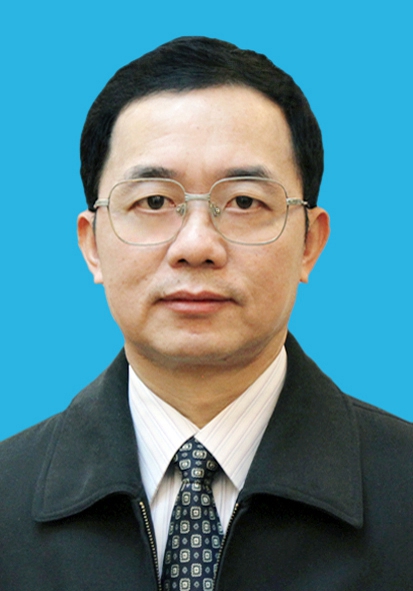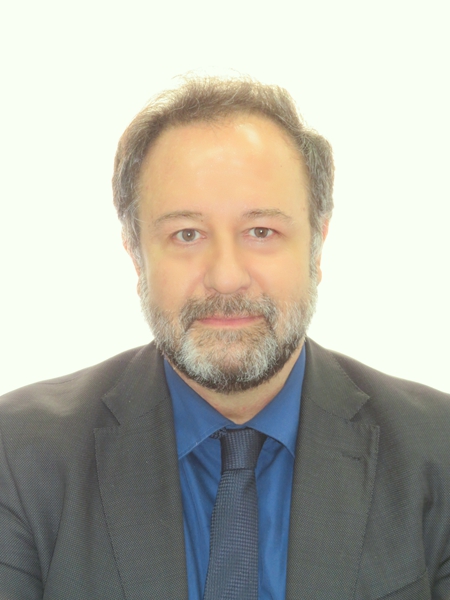Experts at a think tank webinar held Monday emphasized that a joint global response and solidarity are needed more than ever in combating the COVID-19 pandemic as it sweeps the world.
The "Contemporary China and World: International Think Tank Webinar on Combating COVID-19," sponsored by China International Publishing Group (CIPG), brought together experts and researchers from six countries on four continents to discuss COVID-19, its implications, and joint international responses to the crisis.

Xu Shunqing, professor and vice dean of the School of Public Health, Huazhong University of Science and Technology [Photo provided to China.org.cn]
Xu Shunqing, professor and vice dean of the School of Public Health at Huazhong University of Science and Technology, has been fighting on the frontlines for over three months. He joined the webinar as a guest speaker from Wuhan and shared his experiences in combating COVID-19 with the other participants.
"The epidemic in China has been basically [brought] under control. It's time for countries to work together and cooperate. We hope that our experience during this period could provide some effective suggestions for you."
He mentioned that the first phase of the war against the coronavirus has been won by Wuhan in China, however, it continues to spread rapidly around the globe. He added his hope that China's experiences combating the virus could act as a reference for other countries now facing the tough battle.

Joel Ruet, president of the Bridge Tank, France [Photo provided to China.org.cn]
Joel Ruet, president of the Bridge Tank of France, who spoke online from Paris, explained that many French people have been very empathetic to the situation in Wuhan and China from the outset, praising the courage of the Chinese people in their daily lives as they went into lockdown to "build a wall or a dam against the epidemic."
Ruet made three main points during his speech. First, he said that the world is still in an ongoing learning process. He appreciated the lessons and sharing by China and other countries, while pointing out the global community is grappling to understand new questions related to future outbreaks, how to reconstruct the economy, as well as how the pandemic may be linked with social and human aspects.
The second point he introduced was regarding solidarity. "A crisis is a time of enduring, and is also time of opportunity," he said, adding, "a crisis is also a time where one can see the worst, but also the best of the society." He noted that the international community had sent masks and aid to China at an early stage of the outbreak while now China is doing the same in return to help other nations.
He also mentioned that companies and associations had halted part of their usual production to transfer and transform their organizational structure, shifting their production from textiles or other products towards creating masks, ventilators and other medical items. "The solidarity is also organizational and industrial," Ruet said. "So, we see a whole industry virtually shifting overnight. Some years ago in Davos, we spoke about Industry 4.0. Now we are in practice and at Industry 4.0."
Ruet's third point is that "we have to think about the system ahead." The system ahead has to be a result in terms of medical and research preparedness, he said, and it has to be for the global public good, which is also the global preparedness of the WHO, in terms of planning global stocks of vaccines and medications, for the authorities to solve the epidemic.
"This crisis is very different from the 2008 economic crisis where the [stimulus] packages could go only to finance. This time the packages have to go to directly to the people, to the companies. And we have a common challenge because we have a shared humanity. " he said.
Ruet concluded that global organizations have shown solidarity beyond politics and ideologies, and "we have to propose measures towards global governance of health security."

Augusto Soto, professor of ESADE, Ramon Llull University & director of Dialogue with China Project, Spain [Photo provided to China.org.cn]
Augusto Soto, professor of ESADE of Ramon Llull University and director of the Dialogue with China Project (Spain), shed light on the significance of global collaboration amid the pandemic during the webinar.
By comparing containment efforts in China with the rest of the world, Soto believed that there was still a lack of unity in many countries in terms of their action amid a major global crisis.
"This crisis is the best example that we share common challenges and a common destiny," he said. "We will most likely have to face many more challenges following the multilateral spirit inspiring both the UN, the WHO as well as the WTO."
Soto also warned the possible emergence of other communicable diseases, and reinforced the importance of managing uncertainty and panic among major economies in the future. He called for countries to collaborate under existing multilateral mechanisms in order to curb the spread of the novel coronavirus, limit economic damage, as well as re-open borders.
"If we do not end up understanding that we share a future which is common, as a species, we will not survive long on this planet," Soto concluded.
The two-hour video conference sponsored by CIPG and organized by the Academy of Contemporary China and World Studies, China Internet Information Center (China.org.cn), China Today, and Bosheng International Cultural Communication Co., Ltd., was centered around the theme "Pooling Wisdom and Sharing Experience: Joint Efforts to Fight COVID-19." Ten guest speakers addressed the common challenges facing all countries.
The novel coronavirus has infected more than 786,000 people and killed over 37,000 worldwide, according to data from Johns Hopkins University as of the morning of March 31, 2020.




